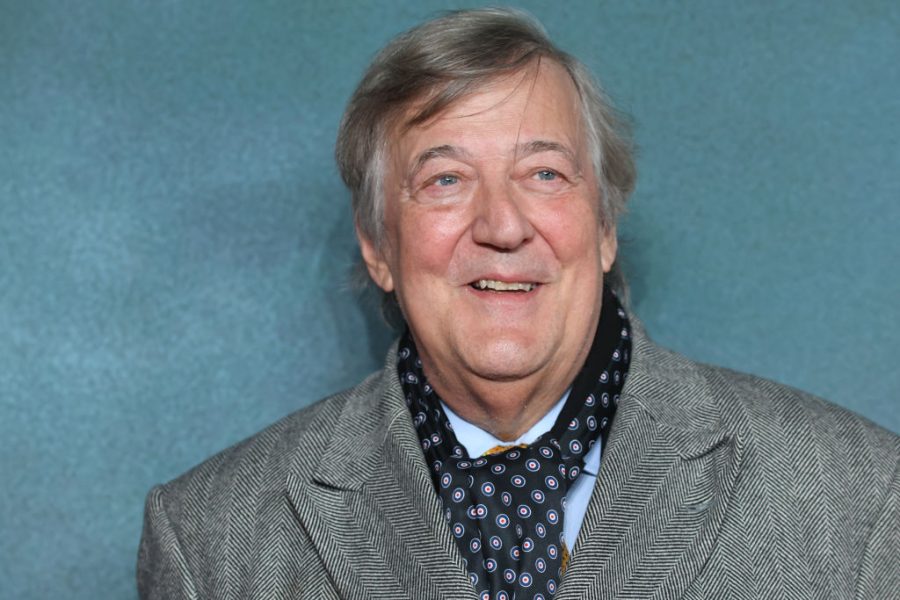Stephen Fry has accused J.K. Rowling of being ‘inflammatory and contemptuous’, ‘mocking’ and adding to ‘a terribly distressing time for trans people’. Fry, who narrated the Harry Potter audiobooks, has damned their author for saying ‘cruel’ and ‘wrong’ things and for failing to ‘disavow some of the more revolting and truly horrible, destructive – violently destructive – things that people say’. He suspects that she’s been ‘radicalised by Terfs’, charged her with kicking up ‘a hornet’s nest of transphobia which has been entirely destructive’, and dismissed her as ‘a lost cause’.
Might I interrupt this lengthy damnatio memoriae to point out that Fry is supposed to be Rowling’s friend and to venture that, if she deserves to be rebuked for anything, it’s her godawful taste in friends. Fry, Daniel Radcliffe, Emma Watson. The woman is like flypaper for airheads, dilettantes, and abject ingrates.
If J.K. Rowling has been radicalised, it is not by Terfs
Fry’s comments, which came in a recording of the podcast The Show People, are in stark contrast to his answer when asked about these matters in 2021 (‘She’s a friend and will remain a friend’) and again the following year, when he refused to ‘abandon’ her and said: ‘I know that J.K. Rowling doesn’t want to see trans people bullied, alienated, shut out of society, made to feel ashamed, guilty, laughed at, all those things.’
Fry suggests Rowling has been ‘radicalised’, a word familiar to followers of the gender controversy for its customary application to women who insist on their rights. Although the terminology echoes that used to describe recruitment of Islamist terrorists, you need not be a feminist semantician to suspect that ‘radical’ is being used as a synonym for ‘hysterical’, as though women who believe in chromosomal sex are like the mad heroine of a Charlotte Perkins Gilman story and would benefit from a lie down.
Radicalisation is a deceptive and manipulative framing because recognising the existence of physiological differences between men and women isn’t radicalism, it’s biology. Fry has repeatedly professed his distaste for the gender wars and refused to engage on the substance. For all his donnish affectations, he’s a ‘be kind’ merchant whose contribution to the debate is every bit as vacuous as those Insta mums who pose with a Pride Progress flag in front of their ‘Live, Laugh, Love’ wall canvas every 1 June.
Yet were Fry to take heed of what the gender ideology vanguard say, he might grasp that their use of ‘radicalisation’ is projection. For if you’ve convinced yourself that men become women by declaring themselves to be so, that women corseting themselves in chest binders or having healthy breasts amputated is sound therapeutic care, that children should be offered medical and even surgical interventions to mutilate their bodies – and, yes, this is what the vanguard believes – then you should stop and ask who exactly has been radicalised here.
When I first wrote critically about gender identity ideology on Coffee House in 2019, it set in motion a parting of ways with several friends who could not tolerate my disagreement with the fundamental convictions they had recently picked up from Twitter. The end of a friendship is often mired in sadness and regret but when a mate breaks away because you reckon Judith Butler is a bit of a nutter, there is – eventually – relief at a bullet dodged.
There is also a deeper appreciation of those friendships which span political and philosophical divides. Some of my dearest friends are people who maintain that trans women are women, Israel is committing genocide in Gaza, Scotland should be an independent state, and Jeremy Corbyn would have made a good prime minister. Mateship across ideological lines is normal and healthy, I don’t care what the bug-eyed scolds on BlueSky say. You stick by your mate, defend him even as you disagree with him, and you most certainly don’t turn on him when a gang of under-medicated hall monitors corner you in the cafeteria.
I’d like to think that Rowling doesn’t pay much mind to turncoats who huff the fumes of her success then ditch her for status points. That she’s too busy spending her days in a mountaintop hotel typing ‘All work and no play makes Jo a dull girl’ and her nights dive-bombing into a vault of gold coins like Scrooge McDuck. But no doubt it stings her just as it would the rest of us. That’s unfortunate but it is better than the alternative. A friendship you can only hold on to by believing, or pretending to believe, that womanhood is nothing more than a feeling, that sex-based rights are bigoted, that transing the gay away is progressive, is a friendship from which you should flee without delay.
If J.K. Rowling has been radicalised, it is not by Terfs but by the spinelessness and intellectual vacuity of characters like Stephen Fry. Men who profess left-liberal affinities in every other regard but are content to align themselves with harmful, reactionary doctrines because to do otherwise would be low-brow. Why, he’d be no better than the ghastly Americans who voted for Trump and those hideous English provincials who read the Daily Express. People like this have nothing to add to the conversation beyond repeating vapid platitudes half-remembered from their last dinner party. If this is the quality of contribution Fry has to offer the gender debate, it might be wise all round if he resumed his vow of silence.








Comments